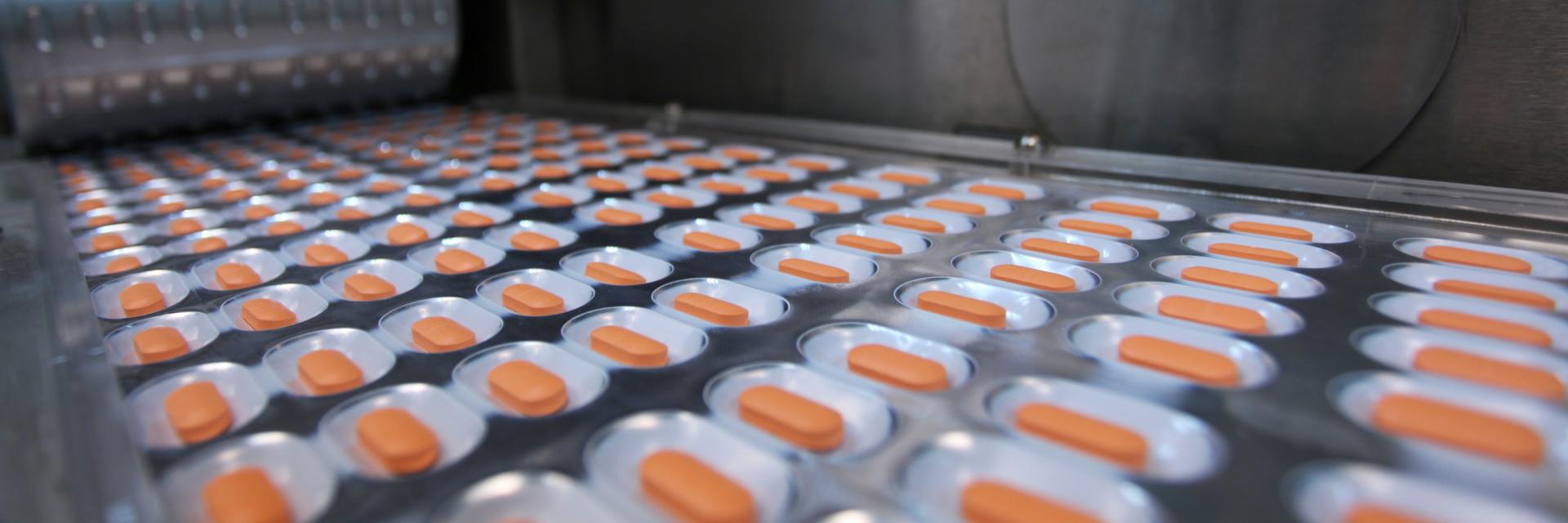Addis Ababa, Ethiopia, 25 February 2021 (ECA) – Side events for the seventh Session of the African Regional Forum for Sustainable Development (ARFSD) kicked off virtually Thursday with the Economic Commission for Africa (ECA) hosting one on the African Continental Free Trade Area-anchored Pharmaceutical Initiative focusing on lessons learnt and experiences in the continent’s quest to manufacture and meet its own pharmaceutical needs.
The initiative was launched in November 2019 with the aim of improving the accessibility, quality, and safety of medicines and medical products in Africa. The side event was moderated by the Chief of the Regional Integration Section at the ECA, Mr. Francis Ikome, who underlined that “we cannot aspire to achieve the sustainable development goals (SDGs) and Agenda 2063 if the population of Africa is unhealthy.”
In his welcome remarks, Mr. Stephen Karingi, Director of the Regional Integration and Trade Division, said the main objective of event was to share key lessons and experiences which demonstrate a demand gap by women and offers business opportunities for the private sector through the aggregation of African countries into a single market by the African Continental Free Trade Area (AfCFTA).
For her part, Ms. Jane Karonga, an Economic Affairs Officer with the ECA, said the aim of the pharma initiative was to promote sustainable social and economic growth through the realization of the Pharmaceutical Plan for Africa (PMPA), leveraging on the AfCFTA with a focus on SDG 1 on poverty reduction, SDG 3 on good health and well-being and SDG 17 on partnerships.
Responding to questions on the effects and challenges of COVID-19 on the availability of essential medicines on the continent, the WHO’s Regional Office for Africa’s representative, Dr. Iasatou Sougou, said a key lesson learnt from the pandemic was how ‘extremely difficult and even impossible’ it was for low-income countries to individually procure and negotiate appropriate prices at the international market for supplies.
The African Union Development Agency (AUDA-NEPAD) representative, Ms. Margaret Ndomondo Sigonda, for her part said the limited regulatory capacity of African countries was one of the major challenges hindering the continent’s access to much-needed medical products and commodities.
She added that AUDA-NEPAD had a joint programme that provides an enabling environment for local production and supports countries through the Regional Economic Communities (RECs) to streamline their regulatory processes by harmonizing requirements for registration as part of their mandate to facilitate the implementation of the PMPA.
Addressing the role of the private sector in leveraging technology in the health sector, Dr. Anastasia Nyalita, CEO CLUBS Ambassador, said technology, knowledge, skills and the cost of compliance were opportunities that should be explored by the private sector to help improve the quality of Good Manufacturing Practices (GMPs).
She added pharmaceutical industries on the continent have a critical role to play in ensuring there are safe drugs on the continent.
Responding to questions on how digital technologies have been helping to mitigate the impact of COVID-19, Mr. Alex Gisagara from Rwanda said his government was using robots to collect vitals such as body temperature to reduce infection rates between health workers and patients.
The side event brought together representatives of UN agencies, the African Union Commission, AUDA-NEPAD, State and non-State actors and international NGOs to share technical experiences and solutions in furthering knowledge for improving Africa’s access to quality pharmaceuticals and COVID–19 pandemic related commodities.
The ECA works in collaboration with AUC, AUDA-NEPAD, WHO, UNIDO, UNICEF and other partners to promote the AfCFTA-anchored Pharmaceutical Initiative.
Issued by:
Communications Section
Economic Commission for Africa
PO Box 3001
Addis Ababa
Ethiopia
Tel: +251 11 551 5826
E-mail: eca-info@un.org

